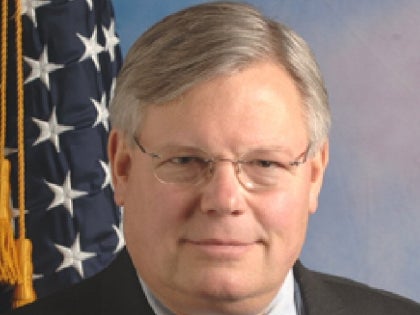
Crain's: Health care lobby prepares to fight calls for big cutbacks
By Barbara Benson
in an ad that began running last week during the Olympics, a pediatrician grimly delivers the line, “Helping New Yorkers lose weight is a matter of life and death.” An offscreen narrator then goes on to lament the sickening rise in childhood obesity, and urges Albany lawmakers to tax sugar-laced beverages.
The message is paid for in large part by the state's powerful hospital trade group and biggest health care union, and for good reason. Hospitals and health care workers want to take the $450 million they expect the tax to generate and use it to mitigate proposed health care cuts.
That multimillion-dollar campaign is just the opening salvo in what is promising to be the toughest budget battle between Albany and the state's big health care lobby in years.
With New York state's tax revenues flagging and its deficit soaring, the massive spending on Medicaid—$51.5 billion in the next budget year even with the governor's proposed cuts, up 1.8% over this year—is looking ripe for the scalpel. Gov. David Paterson's proposed budget calls for $1 billion in increased health care provider taxes and cuts, on top of nearly $4 billion in cuts already enacted through six different budget actions over the past two years.
With that ominous financial backdrop, New York hospital executives head to Albany this week to lobby lawmakers. Their goal is to pare back the proposed cuts as legislators struggle to deliver the state's budget by its due date of April 1. And the lobbyists will go armed with stories of the new poster child for the cost of health care cutbacks: the nearly bankrupt St. Vincent's Hospital in Manhattan's West Village neighborhood.
Following the news Friday that Mr. Paterson would not seek election, health care lobbyists are scrambling to adjust their negotiating strategies. Now, they have to factor in whether Lt. Gov. Richard Ravitch will take over budget negotiations for the politically hobbled governor. Mr. Ravitch is known for his hawkish views on the severity of the state's budget problems and the need to fix them. On the other hand, he is a former trustee of Mount Sinai Medical Center who has a good understanding of the hospital industry and its own financial problems.
Reluctant to up taxes
the intense lobbying push comes as New York health care facilities also face federal Medicare funding cuts of as much as $15 billion over 10 years if the Obama administration's latest version of health reform goes through, according to the Healthcare Association of New York State. Yet it is still unclear where that reform is headed, since last week's health care summit in Washington provided little resolution on policy issues dividing Democrats and Republicans.
“We are trying to bring these facts to bear in conversations with the legislature and the executive staff,” says Kenneth Raske, president of the Greater New York Hospital Association, one of those which funded the soda tax ad, along with others. “The stakes have never been higher in terms of this budget.”
To help counter the cuts, the industry is throwing its weight behind the soda tax. They are doing so under the banner of the Alliance for a Healthier New York, a coalition funding the ads to generate support for the proposed tax on sugar-sweetened beverages.
Health Commissioner Dr. Richard Daines was among those thrilled to see the ad during the Olympics last week. He is hitting the media circuit to push the penny-per-ounce excise tax on nondiet sodas and other drinks containing large amounts of added sugar.
In a sign of just how tough the battle will be, the beverage lobby is already fighting back with its own ads, which hit the airwaves last week. Similar campaigns last year helped to kill the proposed tax. This year, though, states such as California are also pushing a similar tax to counter obesity and budget shortfalls.
Still, the hospitals and their allies face an uphill battle getting a tax passed.
“I see the soda tax issue as a public health issue,” says Sen. Thomas Duane, D-Manhattan. “But there is reluctance on the part of my conference in general to increase fees and taxes.”
To read the full article, click here.
